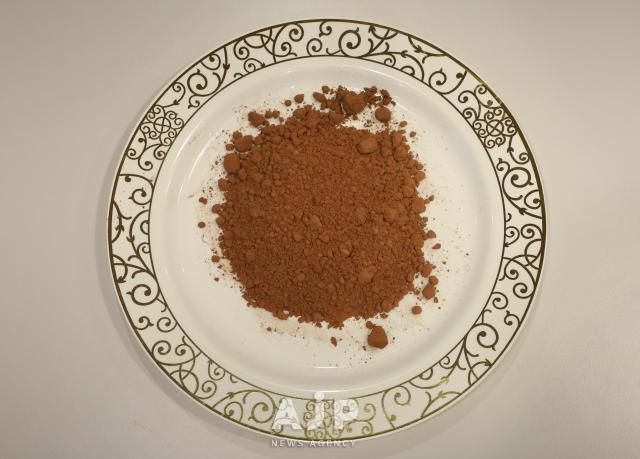
What the confection lacked was the very ingredient that defines chocolate. Instead of cacao, the morsels were made largely from plants like perilla seeds, almonds and coconuts — engineered to mimic the taste, texture and fattiness of real chocolate.
HN Novatech, a South Korean food technology firm, calls its product Ecao, short for "eco" and "cacao." The company is pitching it as a cheaper, healthier and more sustainable alternative at a moment when the global cocoa market is under severe strain.
"We're hoping to develop substitute cacao powder that replicates the experience of luxury chocolates most people can only dream of trying," Kim Yang-hee, the company's chief executive, said in an interview with AJP.
Founded in 2016 as a maker of alternative meats, HN Novatech nearly collapsed when that market stalled.
In 2021, it pivoted to chocolate substitutes just as cacao prices began to soar. "We were extremely fortunate to catch the cacao wave," Kim said.

Cocoa prices have spiked to record levels, fueled by extreme weather, crop disease and pest outbreaks across West Africa, which produces more than half the world's supply. Prices on the Intercontinental Exchange in Chicago have risen 178 percent over the past year.
"Before COVID-19, we bought cacao at $2,000 to $3,000 a ton for more than a decade," said Lee Soo-ho, a manager at Lotte Wellfood, one of South Korea's largest chocolate producers. "Now the price is $7,000 to over $8,000. Some shipments cost nearly five times more."
The International Cocoa Organization reported that global production fell nearly 13 percent from 2023 to 2024, with stockpiles dropping almost 30 percent. While a modest recovery is expected, scientists warn that by 2050, rising temperatures in Ghana and Côte d'Ivoire could make cocoa farming untenable.
Ecao costs less than half the price of natural cocoa powder in South Korea — about 5,500 won ($4) per kilogram, compared with 12,000 won for the real thing. It contains no caffeine, requires little pesticide, and, unlike traditional cocoa, involves no child labor in harvesting.
The company describes its approach as "ingremimetics," a portmanteau of "ingredient" and "mimetics," designed to extract the essence of chocolate eating — taste, texture and fat content — from other plants.
The substitutes are already drawing attention. HN Novatech said it is in talks with both international and domestic confectionery firms to develop products using Ecao.
Beyond Chocolate
The company's ambitions extend further. It is experimenting with so-called "weed crops" like milk thistle and bur cucumber — hardy plants that thrive in extreme climates with little water or fertilizer.
"We could help the environment by utilizing these vigorous plants while finding sustainable options," Kim said.
But food safety experts remain cautious. "Thorough safety testing will be required before unconventional plants can be commercialized," Seo Seung-oh, a professor of food science and biotechnology at Seoul National University, told AJP.

Meanwhile, demand for chocolate shows no sign of slowing. The global confectionery market is projected to reach $140 billion by 2025.
CEO Kim says her company's next target is the prized criollo cacao bean, a rare variety that makes up just a sliver of the global market but commands luxury prices.
"We could take chocolates that cost 10 million won and bring them down to 10,000," she said. "Special gifts for special occasions — but accessible to more people."

Copyright ⓒ Aju Press All rights reserved.



![[K-Tech] Vegan meat gains global momentum. In Korea, its a harder sell.](https://image.ajunews.com/content/image/2025/08/19/20250819085345169133_278_163.jpg)
![[K-Tech] From creepy-crawly to culinary contender: Companies bet big on edible insects](https://image.ajunews.com/content/image/2025/07/24/20250724084507564010_278_163.png)